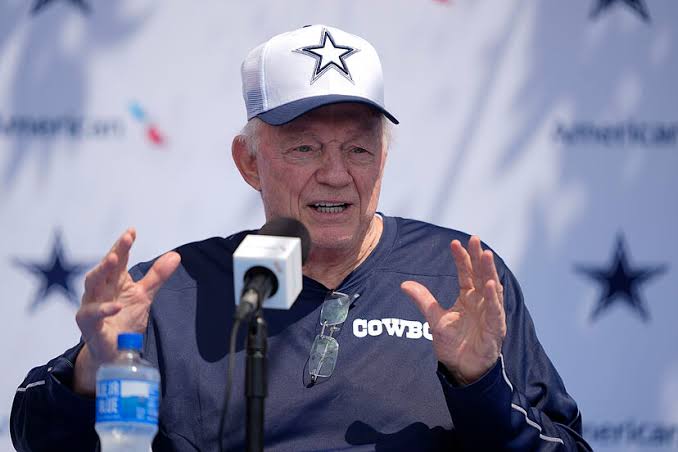Decision to start Trey Lance in finale raises eyebrows and sparks debate.
The Dallas Cowboys’ season finale against the Washington Commanders stirred controversy, not because of the outcome but due to Jerry Jones’ decision to start third-string quarterback Trey Lance over veteran Cooper Rush. Rush, who stepped up admirably after Dak Prescott’s season-ending injury, led the Cowboys to a 4-4 record in eight starts. His performance included 1,844 passing yards, 12 touchdowns, and a 60.7% completion rate, positioning him just shy of earning a $250,000 contract incentive for playing 55% of the team’s snaps.
The move to bench Rush not only denied him the additional bonus but also sparked accusations that the decision was financially motivated. NFL analyst Warren Sharp criticized Jones, writing, “Jerry Jones deserves all the karma if he doesn’t pay out Cooper Rush’s $500k incentive for playing at least 55% of snaps this year.” Fans on social media echoed this sentiment, with one calling it “the most Jerry Jones thing ever” to prioritize saving money over rewarding a hard-working player.
Jones framed the decision as an opportunity to evaluate Trey Lance, acquired earlier in the season from the San Francisco 49ers. Starting Lance in the finale allowed the Cowboys to assess the young quarterback in a live game scenario. While that reasoning holds merit from a football perspective, critics argue the timing overshadowed Rush’s contributions and created a perception of prioritizing finances over fairness.
Rush’s missed incentive became a focal point for fans frustrated with the Cowboys’ season and Jones’ management style. The decision has reignited long-standing debates about Jones’ hands-on approach and its impact on team morale. Many believe that rewarding Rush for his efforts, rather than focusing on short-term savings, would have sent a stronger message about valuing players’ contributions.
As the Cowboys head into the offseason, the debate surrounding this decision lingers. While Lance’s performance might provide insights for the team’s future, the controversy has left fans and analysts questioning whether financial considerations took precedence over fostering trust and loyalty within the organization. For now, Jones remains at the center of the storm, with his legacy once again under scrutiny.
